How to Make Furniture Legs with Plywood
Make Furniture Legs with Plywood? Yes!
When I am working with what I call a “specialty plywood” such as Walnut, Maple, etc., buying 2×2 pieces of that particular species is never part of the budget. Don’t get me wrong, I would love to be able to purchase solid wood other than Oak or Pine but I just can’t afford it. So when I am working with a specialty plywood and I need legs for the project, I make furniture legs with plywood! Unless the project is going to be painted (and I would never paint hardwood!!), this helps with the consistency of the wood species. For instance, I would not use Pine or Oak with Maple, although it may look kind of cool but I would rather go with a more cohesive look. Making my furniture legs from plywood solves this problem!
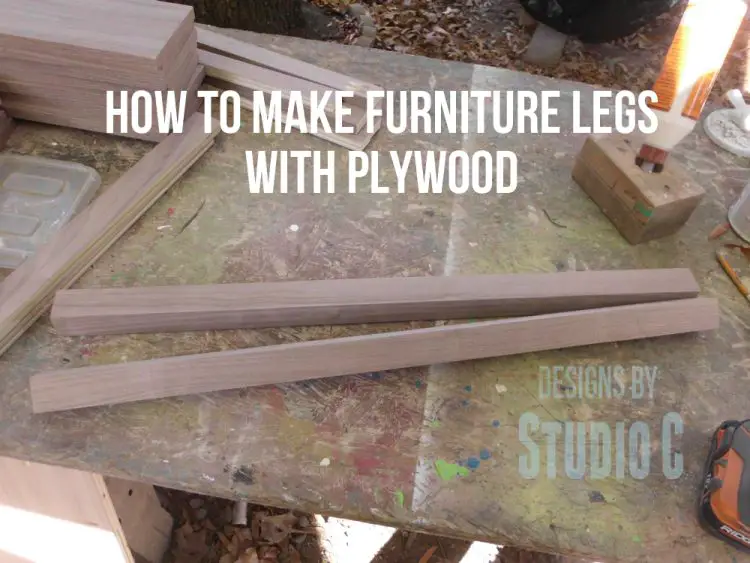
Here is what you will need:
- Plywood
- Wood glue and 1-1/4″ brad nails
- Tapering jig, optional
- 2″ edge banding (<– affiliate link!) & trimmer
- Sandpaper (I use 150 & 220)
I start by cutting strips of the plywood a little wider than the finished width. For example, the Walnut I am using isn’t quite 3/4″ thick. The plywood measures approximately 11/16″. I cut my strips at 1-5/8″ wide by the length indicated in the plans I’m using.
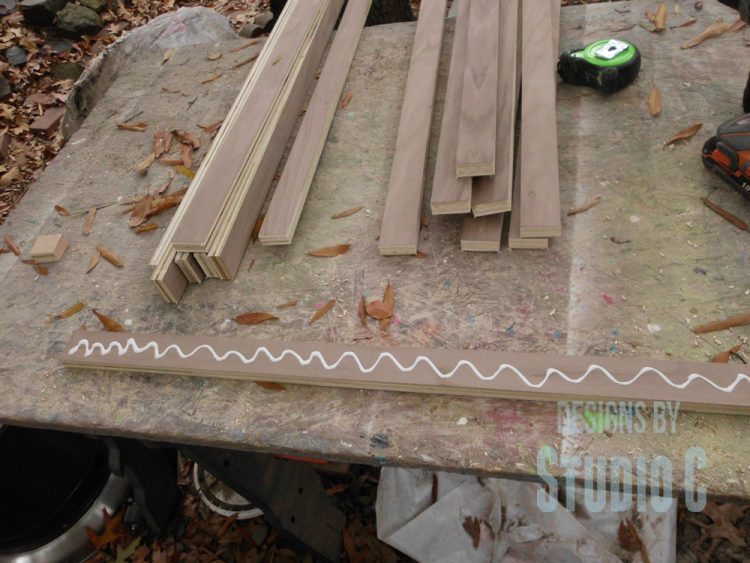
I spread glue on the face of one piece, then lay another piece on top wiggling it to create suction (so there aren’t as many air spaces in between the pieces) then secure the two pieces together using my brad nailer and 1-1/4″ brad nails.
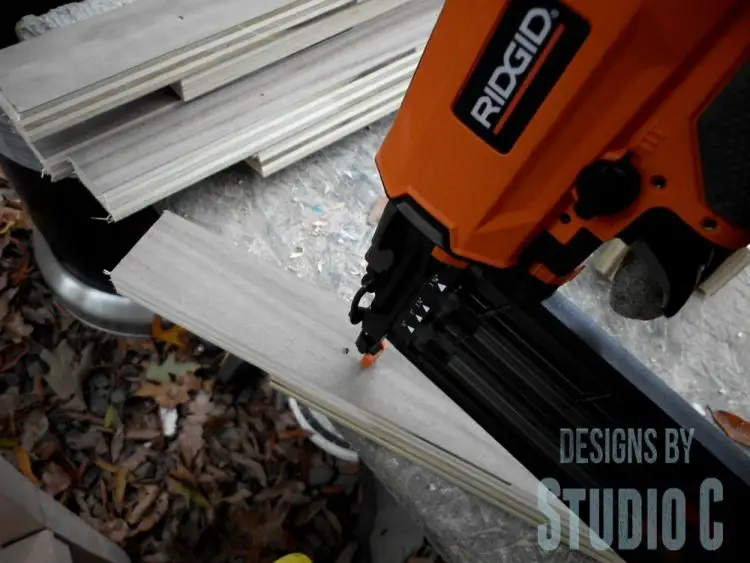
I ran the pieces through the table saw setting my rip fence for 1-1/2″ from the blade and trimmed off one side of the raw edges. I then reset the rip fence for 1-3/8″ from the blade (my final width) to trim the other side. This helps square up the pieces and makes a nice finish for edge banding! At this point, a taper can also be cut in the leg using a tapering jig but only on one of the sides with the exposed edges!
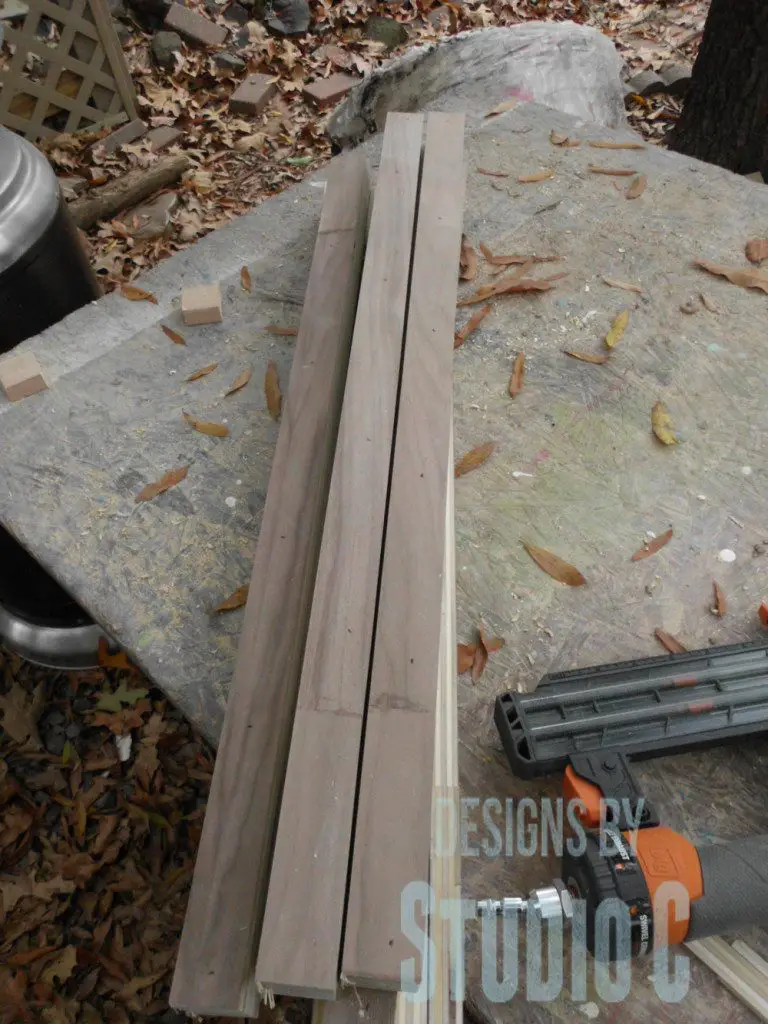
I apply 2″ edge banding to each side with the exposed edges, then trim the excess away.
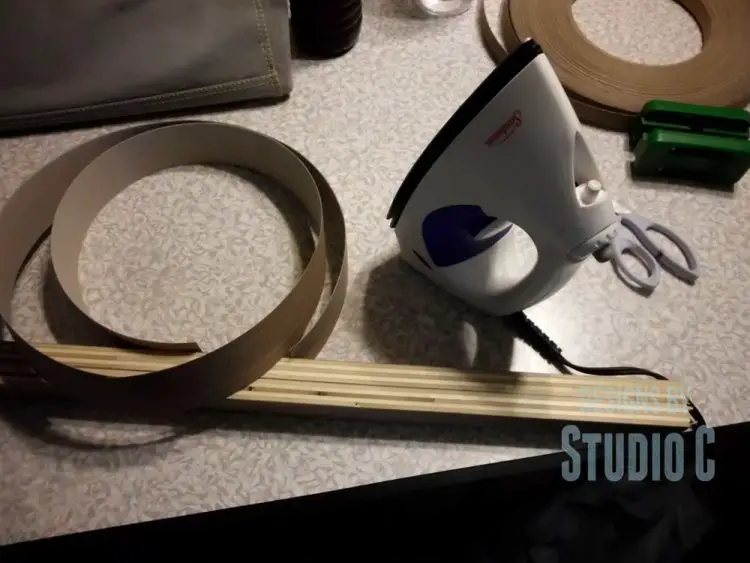
I thoroughly sand all areas of the leg. Then I am ready for assembly!
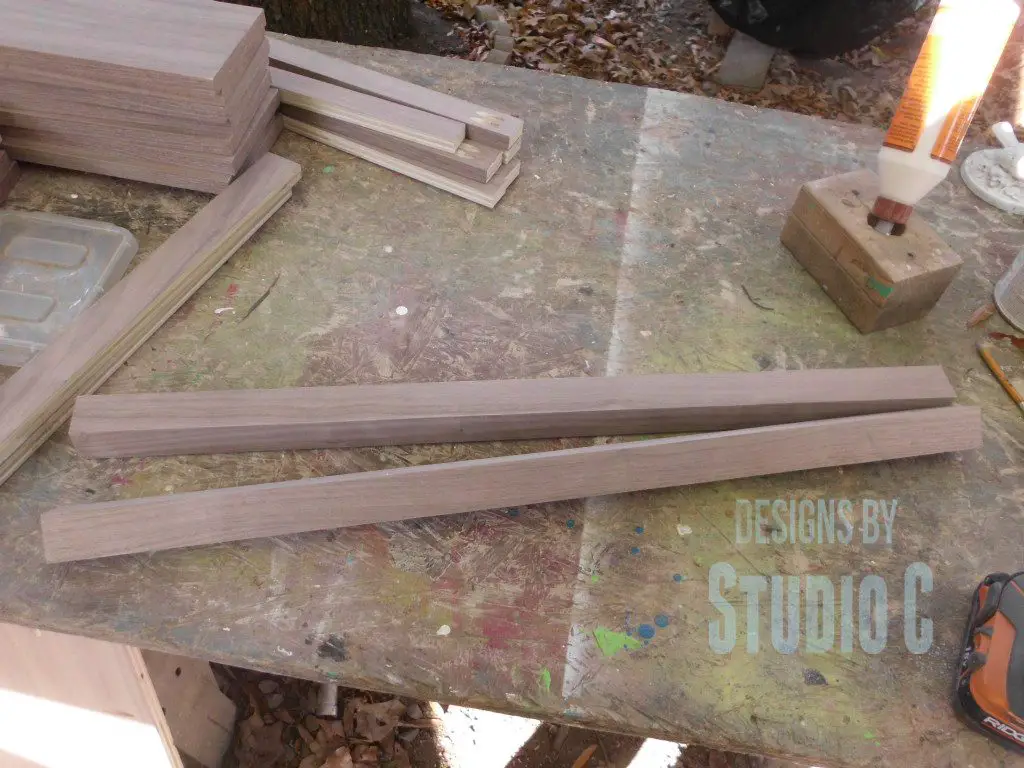
It is hard to tell that the leg is plywood and not a solid piece of wood!
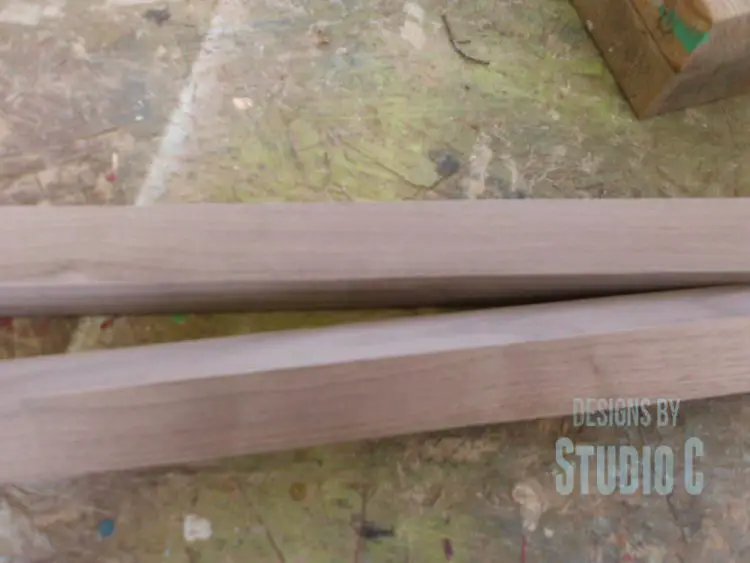
So now you know that you can make furniture legs with plywood and it can look like a solid piece! Awesome, right? Need help? Let me know! Contact me at cher {at} designsbystudioc {dot} com!
Originally posted 2013-11-21 08:00:20.


Hey Cher, what are you going to attach these to and are they going to be attached vertically or horizontally? They look absolutely uniform!! Kudos!
Thanks so much! They are legs for a desk I am building and I think they look pretty good, too!
I’d like to say Cher will be attaching them to something she’s making for me 😀
Wow Cher, is there anything you can’t do?
Lol! Why yes, Elle, there is – I cannot keep my house clean mainly because I’m outside working on my projects all of the time! Ha ha!
That’s so freaky! Now I’m wondering how much of my furniture is plywood.
[…] This particular model, I bought from Rockler.com – Woodworking and Hardware (affiliate link!) which is also one of my favorite sites for woodworking supplies. Though I’ve had to make a few modifications, I really like this machine! The machine will accommodate edge banding up to 2″ wide which is perfect for me because I like to make furniture legs from plywood! […]
[…] This particular model, I bought from Rockler.com and they can also be purchased through Amazon (affiliate link!). Though I’ve had to make a few modifications, I really like this machine! The machine will accommodate edge banding up to 2″ wide which is perfect for me because I like to make furniture legs from plywood! […]
[…] the legs, can be cut from plywood in order to keep the wood species consistent. (See my tutorial on how to make furniture legs from plywood!) Have any questions about the Danish Modern coffee table plans? Let me know at cher {at} […]
[…] 2 – 2×2 at 6′ (these pieces can also be cut from plywood) […]